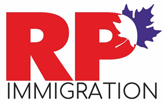POST - GRADUATE WORK PERMIT
The Post-Graduation Work Permit (PGWP) program in Canada allows international graduates to obtain a work permit to gain Canadian work experience after completing their studies in Canada. The PGWP is valid for up to three years, depending on the length of the graduate’s program of study.
If you have a valid PGWP, you may be eligible to apply for an extension of your work permit. To be eligible, you must still have a valid passport and be in Canada when you apply for the extension.
To apply for a PGWP extension, you must submit an application online through the Immigration, Refugees and Citizenship Canada (IRCC) website. You will need to provide supporting documents, including proof of completion of your program of study, a copy of your passport, and any other documents required by IRCC.
It is important to apply for your PGWP extension as soon as possible before your current work permit expires to ensure that you maintain your legal status in Canada.
Make sure that you are eligible for the PGWP extension. You must have a valid PGWP that has not expired and have completed a program of study that is at least eight months long at a designated learning institution (DLI) in Canada. You must also have graduated from a DLI in Canada and received a degree, diploma, or certificate.
You will need to gather the necessary supporting documents, including a copy of your valid passport, your original or certified copy of your transcript, and proof of completion of your program of study. You may also need to provide additional documents, depending on your situation.
Once you have completed the application form and paid the fee, you can submit your application online through the IRCC website. You will receive a confirmation of your application submission, and you can track the status of your application online.
The processing time for PGWP extension applications can vary, but it typically takes about 87 days. You can check the current processing times on the IRCC website. Once a decision has been made on your application, you will receive a notification from IRCC.
ELIGIBILITY CRITERIA
To apply for a PGWP extension, you must meet the following requirements:
- You must have a valid PGWP that has not expired.
- You must have maintained your status as a student and remained in Canada since your last entry.
- You must have completed a program of study that is at least eight months long at a designated learning institution (DLI) in Canada.
- You must have graduated from a DLI in Canada and received a degree, diploma, or certificate.
- You must apply for the extension before your current work permit expires.
DOCUMENT REQUIREMENT
- Passport
- Proof of completion of your program of study
- Proof of continued status as a student
- Proof of work experience
- Application fee











